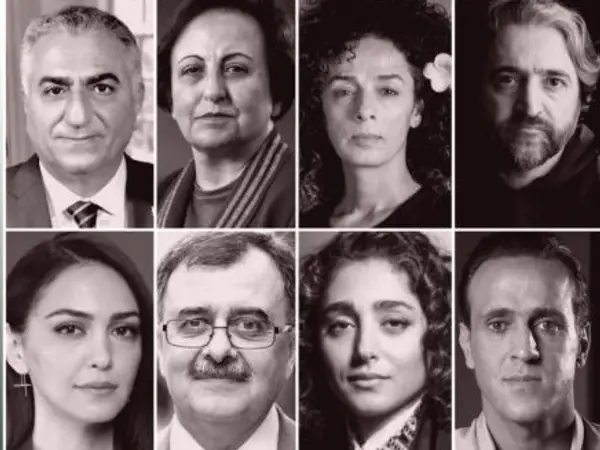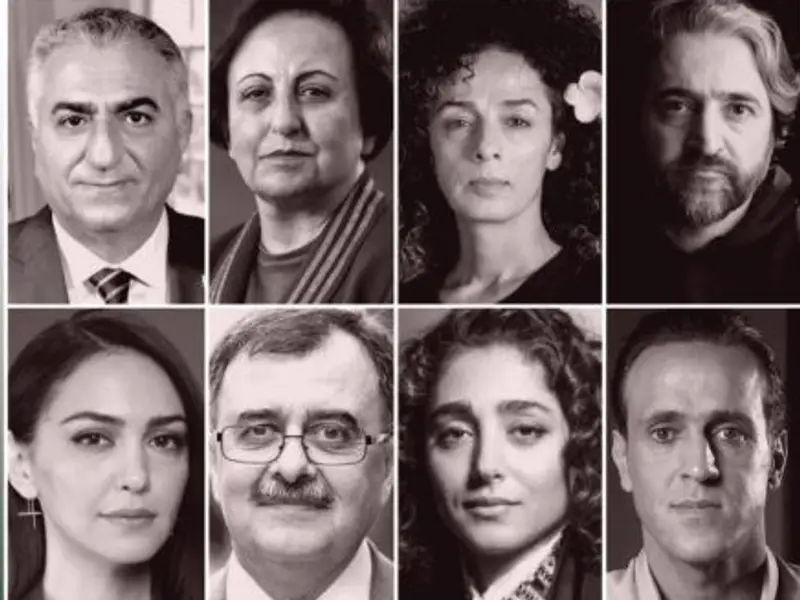Eight key Iranian diaspora opposition figures will hold a meeting with the media at Georgetown University Friday titled: The Future of Iran’s Democracy Movement.
Since the start of popular antigovernment protests in Iran last September the issue of forming an opposition leadership council has been a hot topic of discussion among Iranians. This is the first time key figures outside the country join together in one venue to express their views.
Exiled Prince Reza Pahlavi, Nobel laureate Shirin Ebadi and Canada-based Dr. Hamed Esmaeilion, President of the Association of Families of Flight PS 752 downed by Iran’s Revolutionary Guard in 2020, as well as US-based author, journalist and women’s rights activist Masih Alinejad, actresses and activists Nazanin Boniadi and Golshifteh Farahani, former captain of Iran’s national soccer team Ali Karimi and Secretary General of Komala Iranian Kurdish party Abdullah Mohtadi are four women and four men of the group.
The February 10 event at Georgetown’s Institute for Women, Peace and Security (GIWPS) will be moderated by Karim Sajjadpour, Senior Fellow at the Carnegie Endowment and adjunct professor at Georgetown University.
“For the first time since the uprisings began, eight of the Iranian democracy movement’s prominent diaspora leaders will share the stage to talk about the continued viability of the movement, their common vision for Iran’s future, and how democratic change in Iran can change the world,” an announcement by GIWPS said.
The event can become a turning point in shaping a united leadership abroad to represent the democracy movement in Iran, where activists have no chance of publicly defending it. Thousands of protesters are still in prison and dozens face the death sentence.
The event coincides with the 44th anniversary of the establishment of the Islamic Republic, which this year is marked amid political uncertainty as many people in Iran support or sympathize with the protest movement and are caught in perhaps the most difficult economic crisis since the 1979 revolution.
The clerical-military regime finds itself in international isolation, facing multiple domestic crises and beginning to show signs of strain.
Last week, Mir-Hossein Mousavi, the leader of the 2009 Green Movement who has been under house arrest since 2011, issued a strong statement calling for a referendum to decide the future form a democratic Iran. Mousavi who was a top leader of reformists in Iran said that there is no hope the ruling regime can be reformed.

